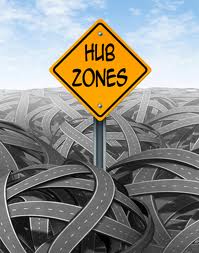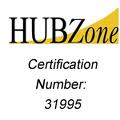HUBZone Certification —How Does a Business Get Certified?
 HUBZone Certification—How Does a Business Get Certified?
HUBZone Certification—How Does a Business Get Certified?
By Felix Zapata
Are you a small business owner located in an economically distressed urban or rural community with high unemployment or low income levels? Are you looking for help with federal contracting and interested in becoming certified in the U.S. Small Business Administration’s (SBA) Historically Underutilized Business Zones (HUBZone Certivication) program?
If so, you may be eligible for the program if you can answer yes to the following questions. Ask yourself:
- Am I a small business according to SBA’s size standards?
- Is my business 51 percent owned and controlled by a U.S. citizen?
- Is my principal office located in a HUBZone Certification designated area?
- Do at least 35 percent of my employees reside in a HUBZone Certification designated area?

HUBZone Certification Program – What is it?
The HUBZone Certification program — enacted in 1997 – helps small businesses located in HUBZones get contract help, thus promoting job growth, capital investment and economic development in economically depressed areas, in both rural and urban communities, and on Indian reservations. The federal government has a goal of awarding 3 percent of its contracts each year (measured in dollars) to eligible HUBZone certification small businesses. In FY 2010, the federal government awarded $11.97 billionto HUBZone Certification firms.
 Small businesses certified in the HUBZone Certification program are eligible for three types of contracts including:
Small businesses certified in the HUBZone Certification program are eligible for three types of contracts including:
- set-aside contracts (only HUBZone Certification businesses submit offers)
- sole-source contracts (for some contracts with an anticipated award price between $3.5 million and $5.5 million, the government can give a contract to a HUBZone Certification after soliciting and negotiating with just that one single company, depending on what business sector the company operates in.
- full and open competitive contracts (HUBZone Certification companies compete with other bidders, but get a 10 percent price preference).
How do I Know If My Business is in a HUBZone Certification Designated Area?
HUBZones are located across the U.S. and its territories. These areas are largely based on unemployment and income data. These areas include:
- qualified census tracts determined by the Department of Housing Urban Development (HUD)
- qualified non-metropolitan counties
- difficult development areas
- qualified Indian reservations
- former military bases closed by the Base Realignment and Closure Act (BRAC)
To see if your area is a designated HUBZone Certification and to apply for the program, visit www.sba.gov/hubzone.
What’s New with the HUBZone Certification Program?
 On September 1, 2011, the SBA informed HUBZone companies by e-mail of the expiration of some redesignated areas on Oct. 1, 2011, the date the Census Bureau publicly released the first results of its 2010 decennial census. Redesignated areas are HUBZones that lost their HUBZone Certification eligibility before October 1, 2008, generally because of changes in their unemployment and/or income status, but were temporarily redesignated as HUBZones Certification until Oct. 1, 2011.
On September 1, 2011, the SBA informed HUBZone companies by e-mail of the expiration of some redesignated areas on Oct. 1, 2011, the date the Census Bureau publicly released the first results of its 2010 decennial census. Redesignated areas are HUBZones that lost their HUBZone Certification eligibility before October 1, 2008, generally because of changes in their unemployment and/or income status, but were temporarily redesignated as HUBZones Certification until Oct. 1, 2011.
Since some of the redesignated areas will no longer be HUBZones, the SBA encourages small businesses located in these areas to go to the HUBZone Certification locator on its Web site to determine whether they are located in one of these expiring areas.
In October 2011, the SBA sent out letters proposing decertification for HUBZone Certification businesses located in expiring redesignated areas. Small businesses also have the option of submitting a voluntary decertification agreement. HUBZone Certification firms decertified from the program must wait 90 days from the date of decertification to reapply for HUBZone certification. Companies currently working on a HUBZone  Certification contract may continue to work on the contract.
Certification contract may continue to work on the contract.
Benefits of Business Certifications with Felix Zapata
Webinar Registration
Wednesday, March 6, 2013
2:00 pm – 3:00 pm est online from BizCentral USA
Key Note Speaker: Felix Zapata
Join us for the rare chance to look into the world of certifications. Discover the benefits of federal and state minority certification, and the whole gamete of certifications that can give you the edge in competition and authorize you to bid on state and federal contracts. You will benefit greatly from the knowledge if only to enlighten you on what may be available for your company. All it takes is the knowledge and desire to succeed; we give you the knowledge FREE in this information packed webinar!
Contact Business Consultant Howard Walker for more info at Felix@Bizcentralusa.com or call him at (407) 857-9002
Register Now, even if you can’t attend we will send you a link to the recorded webinar after the event.
Your Friends in the Struggle,
BizCentral USA



